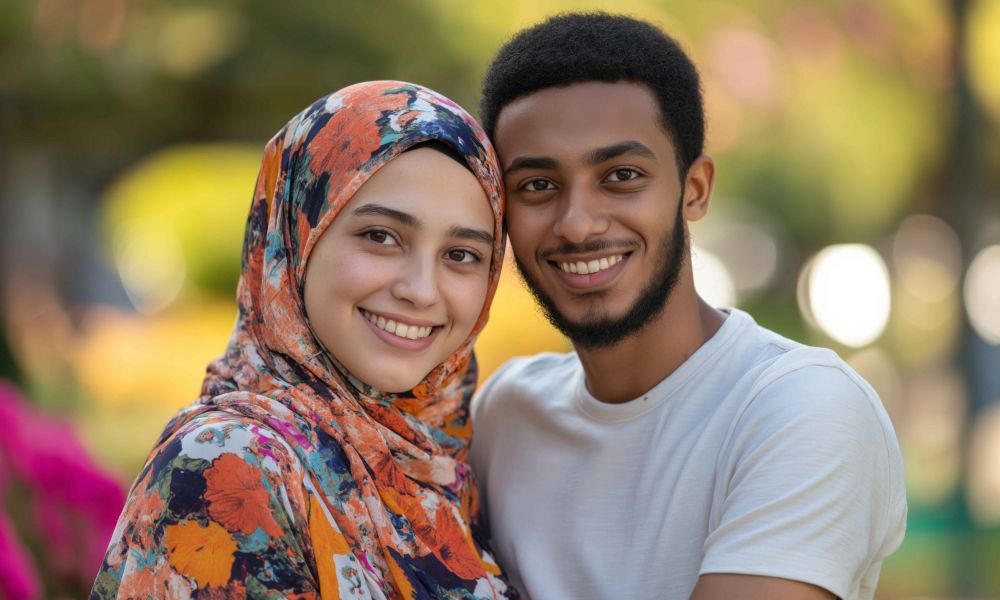
The Role of Wali in Islamic Nikah: Must the Father Be There?
Table of Contents ▼
The role of wali in Islam is central to the Sharia marriage process, making it more than just a personal or family event—it’s a religious commitment. And within this sacred act, there’s a figure who often raises questions, especially in today’s globalized world: the wali, or guardian. Specifically, people ask: Is the father’s presence necessary for an Islamic marriage (Nikah) to be valid?
To answer this, we need to look deeper into the role of wali, how Islamic scholars have interpreted it over the centuries, and how local and national laws apply these rules across different regions.
Table of Contents
So, What Is the Role of Wali in a Nikah?
In traditional Islamic marriages, the role of wali is to act in the best interest of the bride. Typically, this is her father, but it could also be her grandfather, uncle, or, in rare cases, a court-appointed male representative. The wali is responsible for ensuring the marriage is entered into freely, with proper consent, and that the groom is a suitable match.
The role of wali is not meant to override a woman’s will. It is a protective, not oppressive, position in principle. However, how essential this role is—and how it functions—depends on religious interpretations and local laws.
Different Schools, Different Rules: What Scholars Say About the Role of Wali
In Islamic law, or Sharia, there’s not one universal answer. Each school of thought views the role of wali differently.
1. Hanafi School: Wali is Optional for Adult Women
In the Hanafi school, the role of wali is recommended, but not required for adult, sane women. If a woman decides to marry and chooses a suitable partner (someone of equal status and character), her Nikah is valid, even without a wali.
Key Insight: The Hanafi view is often followed in places like South Asia, Turkey, and by many Muslims in Europe and North America.
2. Maliki School: Wali Is a Must, No Exceptions
For followers of the Maliki school, the role of wali is absolutely necessary. Even if the woman is independent, educated, or previously married, she cannot contract a marriage on her own. The wali must approve and oversee the process.
This rule is strongly enforced in regions like North Africa and parts of the UAE.
3. Shafi’i School: Without a Wali, There Is No Marriage
The role of wali in Shafi’i jurisprudence is fundamental. A Nikah without a wali is considered invalid, even if both the bride and groom agree. Consent is not enough unless a wali is involved.
This school’s influence is most visible in Southeast Asia, such as Malaysia and Indonesia.
4. Hanbali School: Strong Agreement With Shafi’i and Maliki
The Hanbali scholars are also strict about the role of wali. They argue that since marriage is a binding contract, it needs oversight by someone who genuinely has the bride’s best interest in mind—usually her father.
This interpretation prevails in Saudi Arabia and conservative Gulf countries.
5. Ja’fari (Shia) School: Wali Depends on Marital History
The Ja’fari school takes a different approach. According to this view:
- If the woman is a virgin, the role of wali—specifically her father or grandfather—is required.
- If she is divorced or widowed, she may conduct her own marriage without involving a wali.
This view is followed in Iran, Iraq, and among many Shia communities worldwide.

The UAE: A Real-World Example of the Role of Wali
The United Arab Emirates offers a clear legal structure based on Islamic principles, and it treats the role of wali as essential in most cases:
1. Dubai
In Dubai, no Islamic marriage can proceed without a wali. If the father is absent or unavailable, the court can assign another male guardian or legal substitute. Even in the case of divorce or widowhood, court intervention is usually required.
2. Sharjah
Sharjah applies strict Islamic rulings. The role of wali here is not only respected but enforced. A woman, regardless of age or past marital experience, cannot marry without a wali.
3. Abu Dhabi
Abu Dhabi offers two marriage paths:
- Muslims follow Sharia rules where the role of wali remains mandatory.
- Non-Muslims may choose a civil process where no wali is needed.
What About the West? Is the Role of Wali Still Relevant?
Muslims living in countries like the UK, Canada, the US, and Australia face a different legal reality. Civil law does not require a wali for marriage. But when it comes to Islamic Nikah, the role of wali often remains a cultural and religious expectation.
Religious Marriages
In most mosques or Islamic centers, the role of wali is honored. Imams typically ask for the wali’s presence when officiating a Nikah. If the father is unavailable, the community may accept another male relative or allow the imam to act as the wali.
Civil Marriages
For legal, government-recognized weddings, the role of wali is irrelevant. These marriages rely on the mutual consent of two adults. However, such a marriage is not considered valid Islamically unless followed by a Nikah that respects the appropriate procedures, including the involvement of a wali, depending on the school of thought.
Why This Still Matters in 2025 and Beyond
Today, more Muslim women are educated, independent, and living in multicultural societies. Many question whether the role of wali is still relevant, especially when they are capable of making informed decisions. This is a valid concern.
However, in Islamic tradition, the role of wali is less about controlling the woman and more about ensuring she is not being pressured or misled. It provides a layer of protection, especially in societies or situations where exploitation is possible.
Final Reflections: What Should You Do?
Before getting married, take time to:
- Understand your school of thought.
- Talk to a local imam or Islamic scholar.
- Consider your legal environment.
- Evaluate your personal situation honestly.
The role of wali should never be a hurdle or a tool of control. Instead, it should be a source of support, reassurance, and spiritual protection.
At the end of the day, the purpose of Nikah is not bureaucracy—it’s the beginning of a partnership built on trust, mutual respect, and love, under the guidance of Islamic values.

